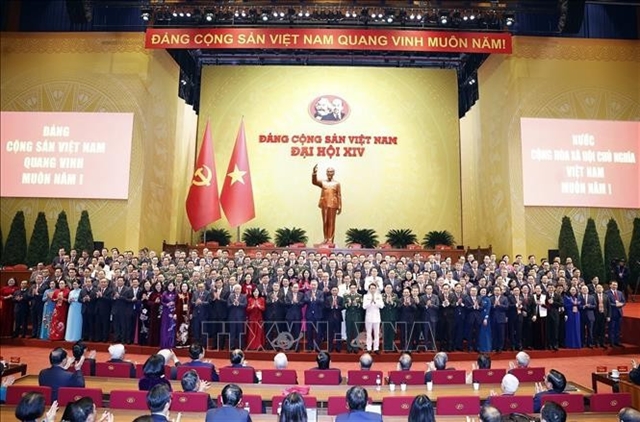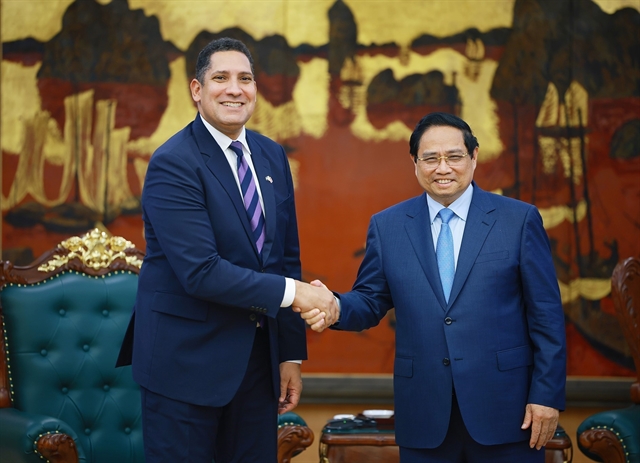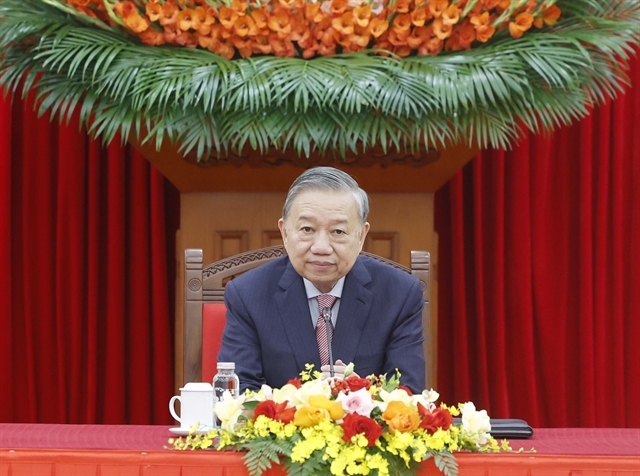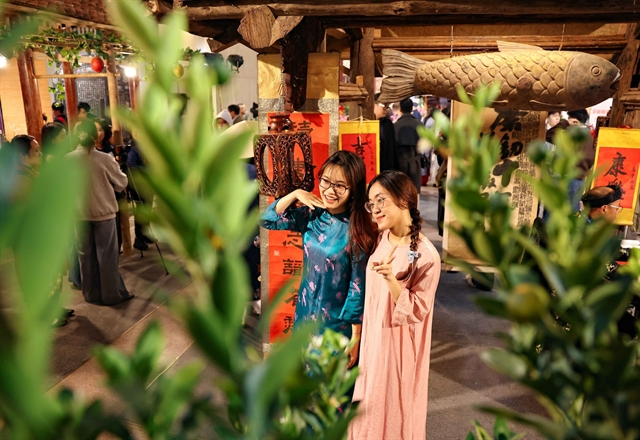 Travel
Travel

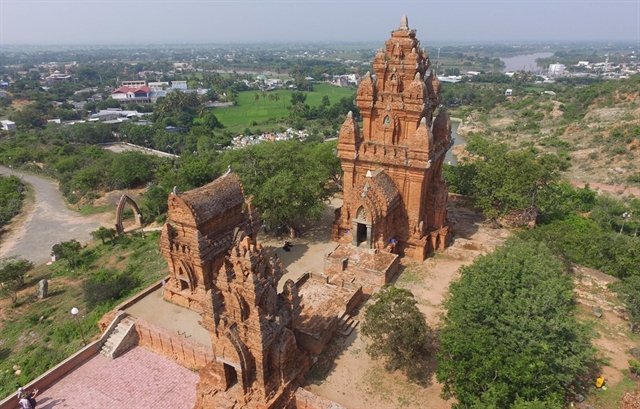
|
| A panoramic view of Po Klong Garai Tower. — Photo vietnamplus.vn |
Lâm Giang
Po Klong Garai Tower is a sacred temple of worship, considered a symbol and the pride of the ethnic Chăm community living in Ninh Thuận Province.
The tower is also known as Po Klaung Garai, PoKlaun Garai and Bửu Sơn. It is located on Trầu Hill, in Đô Vinh Ward, 9km west of Phan Rang City.
Po Klong Garai Tower is associated with the history of the formation and development of Panduranga - the southernmost land of the ancient Chăm Pa kingdom, now in the provinces of Ninh Thuận and Bình Thuận.
The tower was built in the late 13th century and early 14th century to worship King Po Klong Garai, who had many merits for the Chăm people in fighting foreign invaders and building ditches and dams to develop the rice fields.
This building was built from red-fired bricks. It is a complex of three towers: the Main Tower worships the statue of King Po Klong Garai, the Gate Tower in the east, and the tower of Fire God slightly heads to the south with a boat-shaped roof. Of these three towers, the Gate Tower and the Fire Tower are not used for worship; only the main tower is the place to worship King Po Klong Garai.
Setting foot on Trầu Hill, we can already see the majestic beauty of the tower at the top. The closer we get, the more delicate lines and unique architecture appear in front of us.
In front of the cluster of relics is the Gate Tower, with a height of around 10m carved with meticulous patterns. This place was the entrance to ceremonies, and offerings and welcomed guests of the king in the past.
The Fire Tower is in the south, where the typical architecture of the traditional houses of the Chăm people is shown with the Sa Huỳnh Culture.
The Fire Tower is 9.31m high, 8.18m long and 5m wide. The two roofs of the curved boat-shaped tower are similar to the roofs of a long communal house of the ethnic minorities in the Central Highlands. This is the place of sacrifice of the monks, the place to store the imperial mantle and the necessary items of the king of Champa.
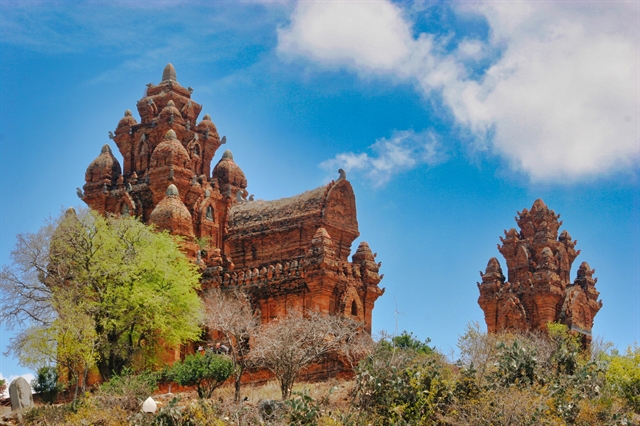
|
| The tower was built in the late 13th century and early 14th century to worship King Po Klong Garai. — Photo vntravellive.com |
Moving deeper is the Main Tower – the centre of the architecture of the Po Klong Garai Tower. The Main Tower has a main door in the east, carved with the image of God Siva. Two stone pillars supporting the tower are engraved with ancient Chăm script. In addition, the tower also has three more doors facing the remaining three sides, carving statues of gods inside.
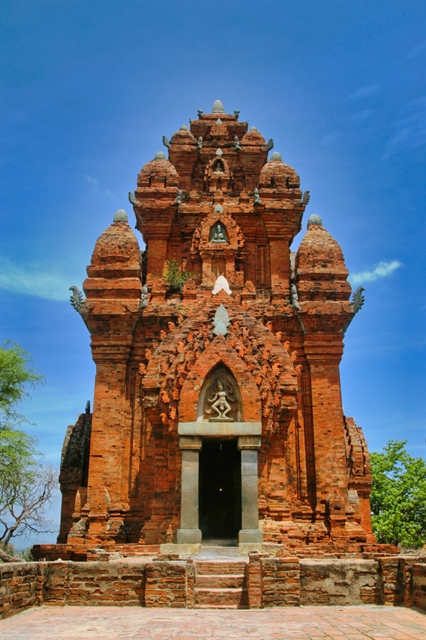
|
| The Main Tower, located on the top of the hill, is the largest. — Photo tcdulichtphcm.vn |
The Main Tower is more than 20m high with a multi-storey design. Around the corners of the tower are attached animal stone statues and fire symbols. Inside, there is a place worshiping King Po Klong Garai, who had great merits in ruling the country.
Over the past 800 years, various traditional festivals such as the ritual to open the tower door, praying for rain, and the Ka Tê festival have been held in the tower, gathering the Chăm people together.
Sử Văn Tiên, a narrator at the tower, said: “The Chăm people consider the Po Klong Garai Tower is a centre of cultural beliefs, so the Chăm community still worships according to the beliefs of four festivals. The most typical here is the Ka Tê festival on July 1 of the Chăm calendar, which is in September or October of the solar calendar. On this day, the Chăm people hold the festival in the tower.”
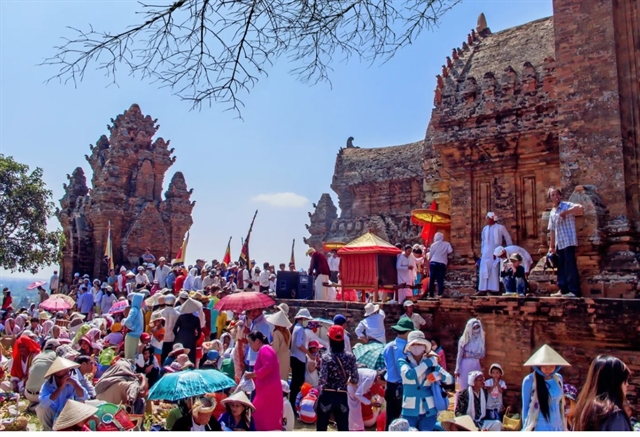
|
| The Ka Tê festival is held at the Po Klong Garai Tower. — Photo quanontheroad.com |
The tower has become an attractive destination in Ninh Thuận for tourists to experience the local culture. It has also been recognised as a Special National Heritage site and has become one of the country's most beautiful Chăm tower complexes. VNS

